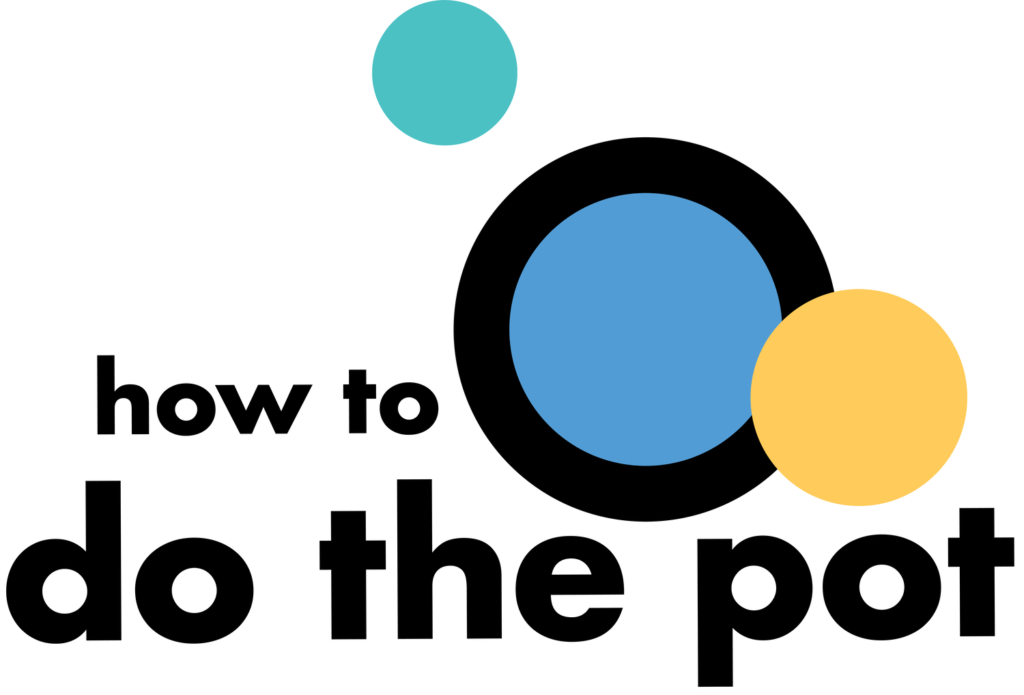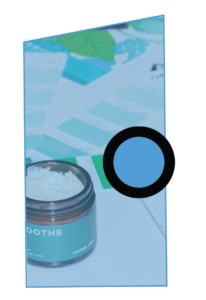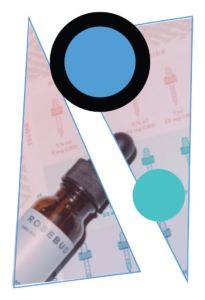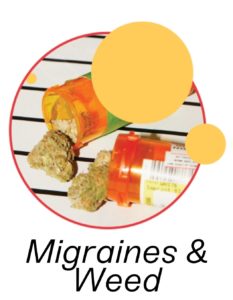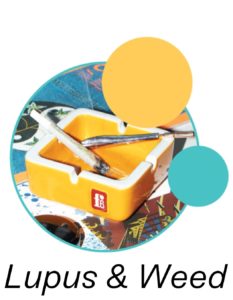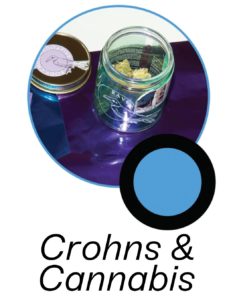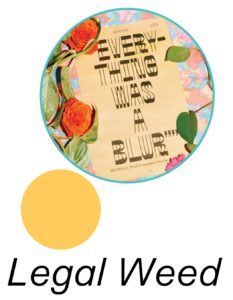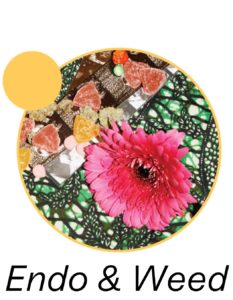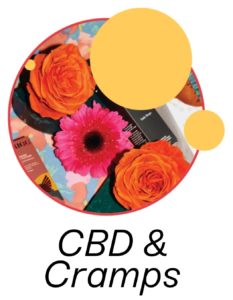Tell everyone you know: cannabis is showing great promise for women who deal with painful periods. The results are often very fast, whether you try a topical cream, an edible or a vaginal suppository, pain can subside within an hour because of the analgesic and anti-inflammatory benefits of cannabinoids.
DOES WEED FOR PERIOD CRAMPS ACTUALLY WORK?
To understand why marijuana works for period cramps, first you need to consider the role of the Endocannabinoid System (ECS), which balances all the body’s systems to keep them working efficiently and properly. While you may not have heard of it, the ECS is a system like the cardiovascular or nervous system, but its sole job is to keep the body balanced.
The ECS can be worn down by poor-quality food, pollution/chemicals, pharmaceuticals, stress, aging, or genetics. Support from THC and CBD can help restore balance in the body – and this is where support for common monthly menstrual symptoms comes into play. After the brain, a woman’s pelvic region contains more cannabinoid receptors than any other part of the body. It’s also why we highly recommend weed for period pain and why women swear by cannabis for menstrual pain relief.

MENSTRUAL CRAMPS, AKA DYSMENORRHEA: SYMPTOMS, CAUSES, TREATMENTS
Menstrual cramps are due to the release of prostaglandins as the endometrial tissue breaks down and women have a period. Higher levels of prostaglandins are associated with more severe menstrual cramping.
Using CBD for Cramps:
Does CBD help with menstrual cramps? Will smoking weed help with painful periods?
Cramps are a result of inflammation. Since CBD helps reduce inflammation and chronic pain, using cannabis products for period cramps soothes inflammation in the uterus, decreases the sensation of pain, and relaxes the muscle contractions that induce cramps.
The best period pain management you could ask for, without unpleasant side effects that can occur with over-the-counter or prescription medications.
The study of medical marijuana and its therapeutic uses to treat period discomfort is still developing, and currently, there is significant anecdotal evidence that marijuana may help women deal with dysmenorrhoea, menstrual cramps, nausea, headaches, and other unpleasant symptoms.
NSAIDs (Nonsteroidal Anti-inflammatory Drugs containing Ibuprofen such as Advil, Motrin, etc) are OTC medications commonly used to treat cramps by blocking prostaglandin production. However, because of its anti-inflammatory properties, some people may prefer to use cannabis products as a natural alternative to painkillers for painful periods.
How to use CBD to relieve Menstrual Cramps
- Oils and Tinctures: CBD oils and tinctures can be a great way to get your daily dose of CBD. Simply place a few drops under your tongue and hold for 30-60 seconds. If you add CBD oil to your favorite beverage, be sure the formulation is water-soluble.
- Topical CBD: CBD products come in many forms, including balms, creams, and lotions. Topical CBD products are applied directly to the skin and may provide targeted pain relief for menstrual cramps.
- Capsules or Pills: CBD capsules and pills offer a convenient way to take CBD orally. A person can easily measure their dosage with a capsule or pill, making it a great option for those who are new to cannabis.
- Gummies: Using CBD gummies or other edibles for menstrual cramps is a popular and convenient option that comes in a wide variety of flavors.
- Patches: CBD patches are a popular way to get cannabinoids into your system, and they can be very effective for pain relief. The great thing about them is that you can choose exactly where to apply the patch, so if you have a specific area of pain, you can target it directly.
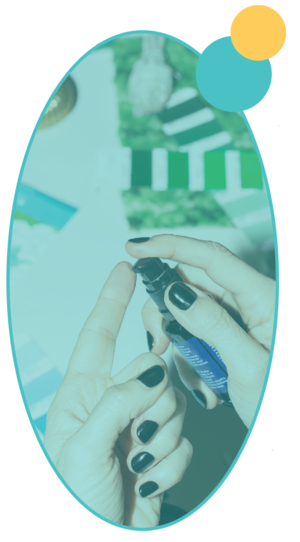
CANNABIS TO SOOTHE PAINFUL SEX
The best SUPPOSITORIES
CBD treats most symptoms that result from localized inflammation of the female reproductive system. This pain can extend to the most critical of connections: sex.
If you suffer from pelvic pain during sex, including the management of pain associated with endometriosis, prepping with a combination of CBD and/or THC can help. Cannabis-infused lubes and suppositories can enhance sensation, promote arousal, reduce pain and anxiety, and increase the likelihood and intensity of orgasms. Lubricants are absorbed through the vaginal dermis, and suppositories are for vaginal and anal insertion.
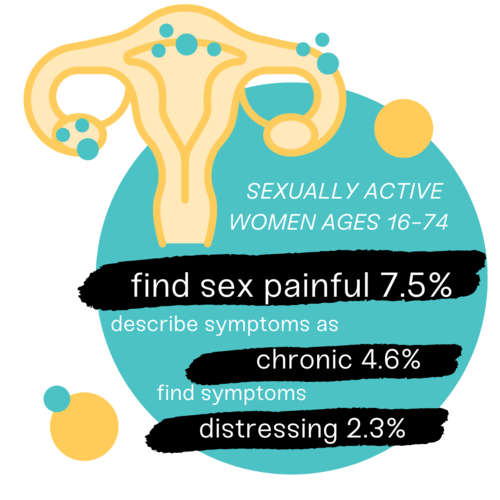
UNDERSTANDING ESTROGEN AND CANNABIS
Did you know that cannabis can be affected by your monthly hormones? A woman’s cannabis tolerance is inversely related to her estrogen level. Women are more responsive to the pain-relieving properties of cannabis and THC when estrogen levels are at their highest (in the days prior to ovulation).
How high you feel can vary by up to 30 percent, depending on your menstrual cycle. Weed will feel more potent the closer you get to your period – so you will feel more high from the same weed. If you are consuming cannabis for menstrual cramps, your tolerance is at its highest, so you may need more to feel its pain-relieving effects.
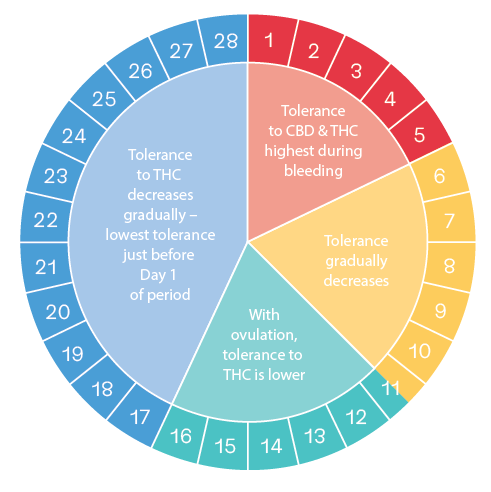

do the pot
If you consumed during Days 1-12 and tolerated it well, to feel the same effects, you could reduce your dosage by half and build up to the perfect dose for your needs.

good to know
Common experiences such as PMS, endometriosis, and PCOS are related to a deficiency in endocannabinoids. According to neuroscientist Dr. Michelle Ross, when you have one disorder of endocannabinoid deficiency, you may have other ones, too.
WOMEN’S REPRODUCTIVE HEALTH AND CANNABIS
A glossary to understand the stages of a woman’s reproductive health.
PREMENOPAUSE: Women still having periods and in reproductive years. Premenopausal women can develop a tolerance to THC quickly, and may be more vulnerable to negative side effects of cannabis such as paranoia, anxiety, or dependence.
PERIMENOPAUSE: Women still having periods but experiencing some symptoms of menopause. Boosting levels of endocannabinoids or stimulating cannabinoid receptors with cannabis may help delay menopause.
MENOPAUSE: Menstruation has stopped for one full year. Cannabis can support symptoms such as insomnia, vaginal dryness, mood swings caused by drops in estrogen levels.
POSTMENOPAUSE: Women may be able to stay on a stable dosage of THC or cannabis for the long-term, and may be less likely to feel anxious or paranoid from cannabis. Since menopausal and postmenopausal women have low levels of estrogen, they may be less responsive to THC and may require higher doses than premenopausal women to achieve the same amount of pain relief.
Any given month in a premenopausal woman’s cycle, your hormone levels fluctuate from the beginning to the end of that cycle. The way that women metabolize medication or the way that we respond to medication may be different, which is a reason that women were left out of clinical trials and medical studies. It was thought to be too costly to integrate women into those studies and easier to do studies on pharmaceuticals and other entities using a male.
– Dr. Colene Arnold, OB/GYN
